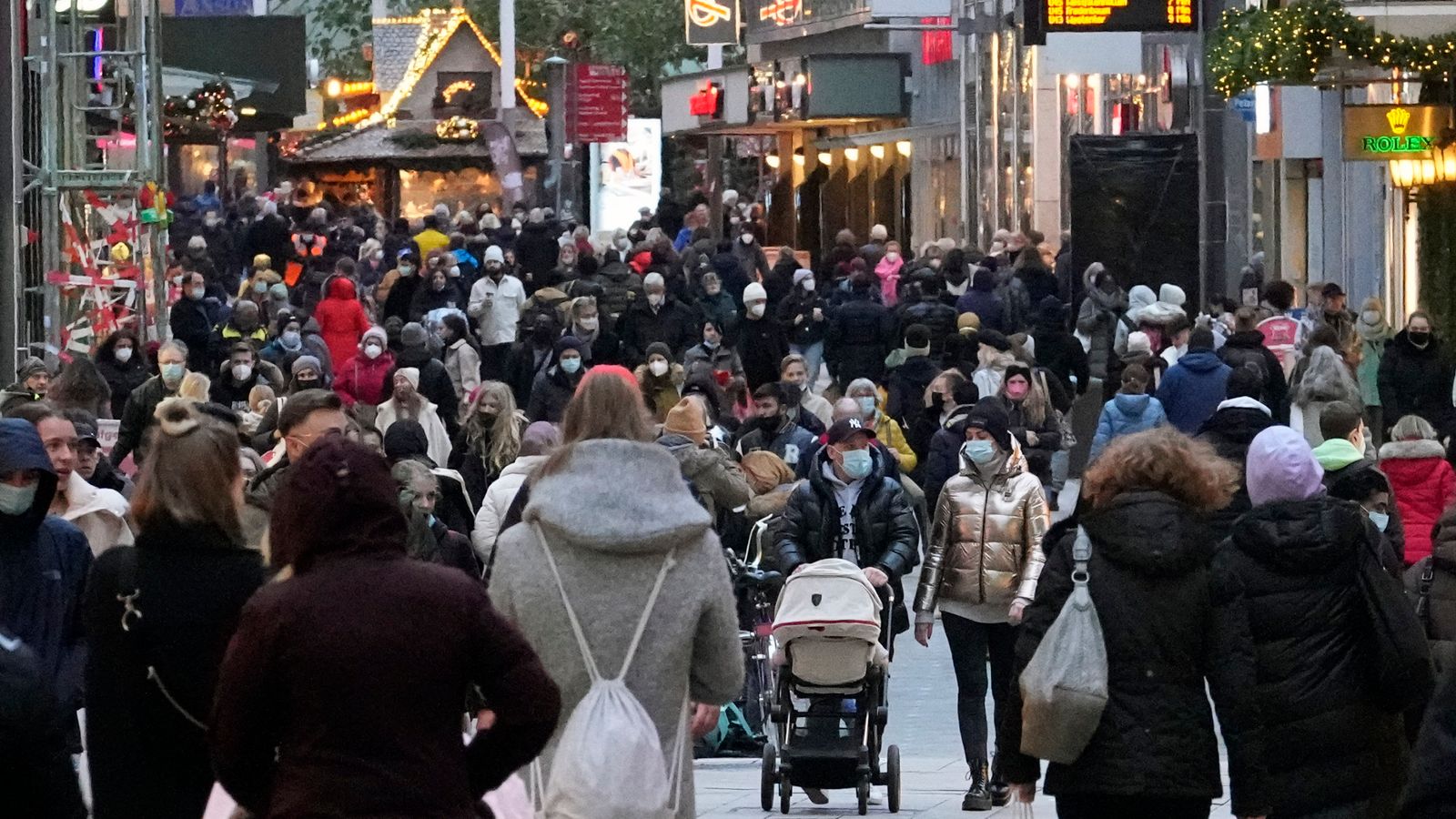Unvaccinated people in Germany are to be excluded from non-essential stores, cultural and recreational venues, Chancellor Angela Merkel has said.
In addition, parliament will consider making coronavirus jabs mandatory from February.
About 68.7% of the population in Germany is fully vaccinated, far below the 75% minimum ministers are aiming for.
The effort to get jabs into more arms will be boosted by adding dentists and pharmacists to those administering them.
Speaking after a meeting with federal and state leaders, Mrs Merkel said the measures were necessary amid concerns hospitals could be overwhelmed.
Some hospitals in the south and east have transferred patients to other parts of Germany because of a shortage of intensive care beds.
The new Omicron variant is adding to health officials’ concerns.
Germany: Parties agree deal to form government that will end Angela Merkel era
Angela Merkel: Departing German leader looks forward to leisure time without political distractions
What next for Germany after Angela Merkel?
Mrs Merkel said she was “depressed” by the strength of the fourth wave of infections in the country, adding she had been hoping a voluntary approach to immunisation would be more effective.
The situation regarding COVID in Germany is “very serious”, she added, describing the new measures as an “act of national solidarity”.
“The fourth wave must be broken and this has not yet been achieved,” she said.
More than 70,000 new infections have been recorded in a 24-hour period.
Mrs Merkel is likely to have left office by February, and mandatory jabs will need to be debated in the Bundestag, following guidance from Germany’s Ethics Council.
She said she would vote in favour were she still a member of parliament.
Finance Minister Olaf Scholz – who is expected to be elected as Mrs Merkel’s successor next week – has also backed the idea, as do most Germans, according to opinion polls.
“If we had a higher vaccination rate, we wouldn’t be discussing this now,” Mr Scholz said.






















